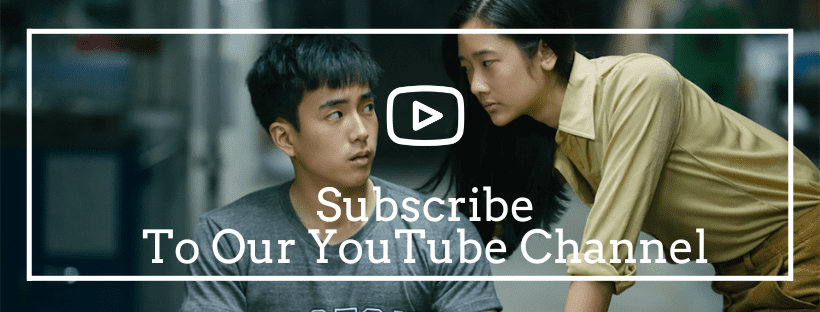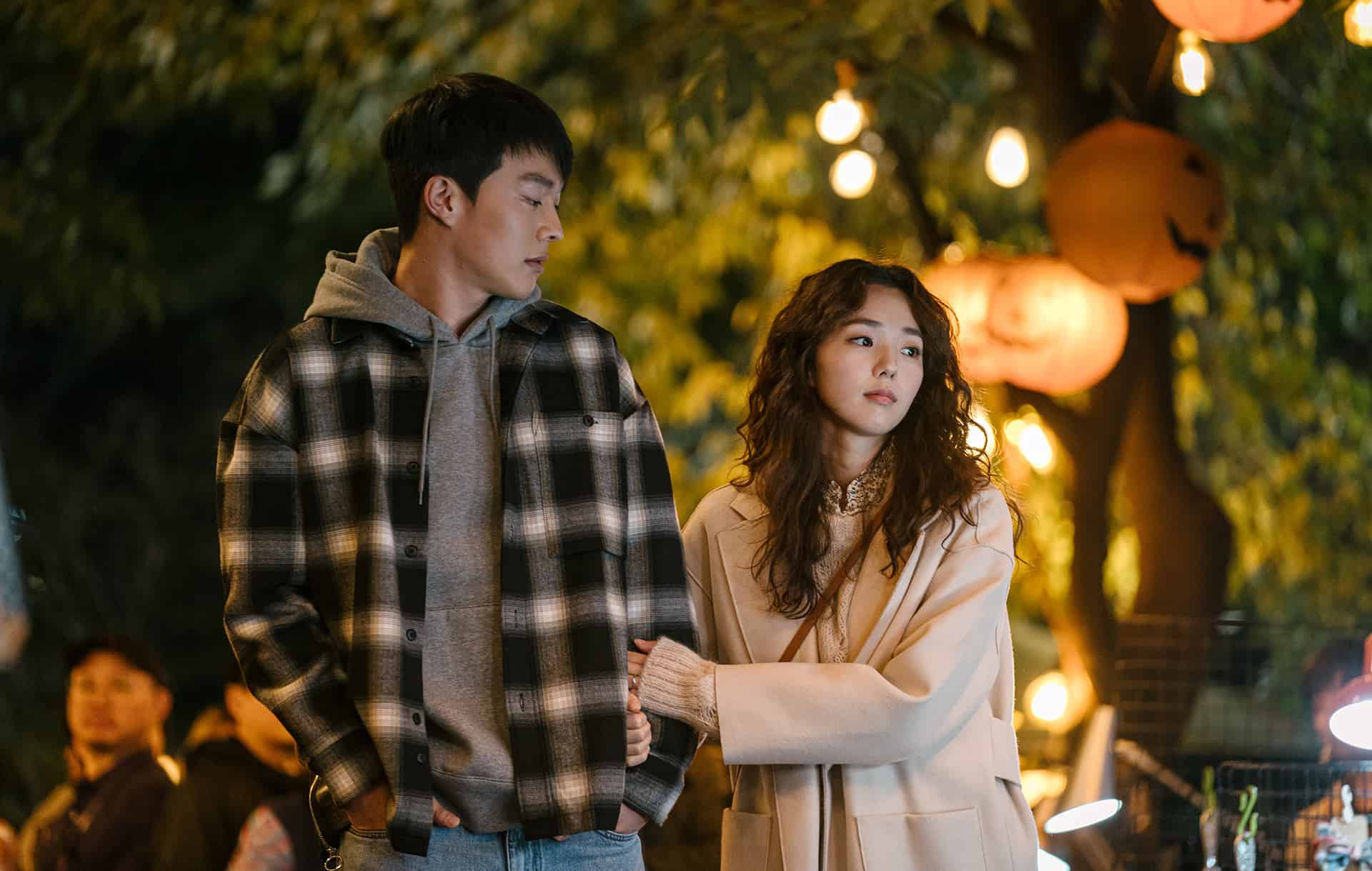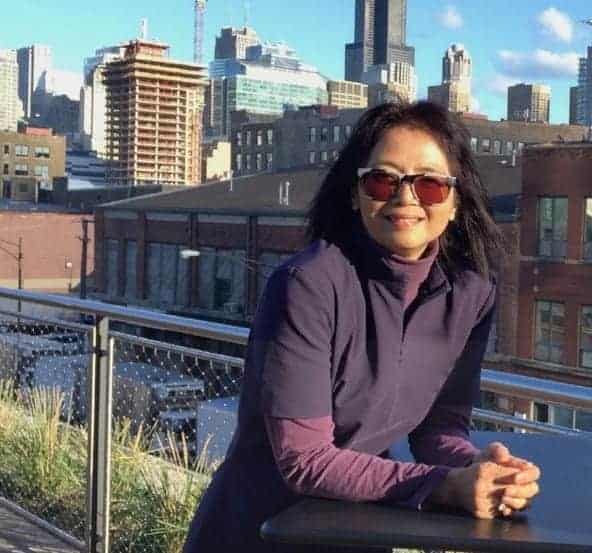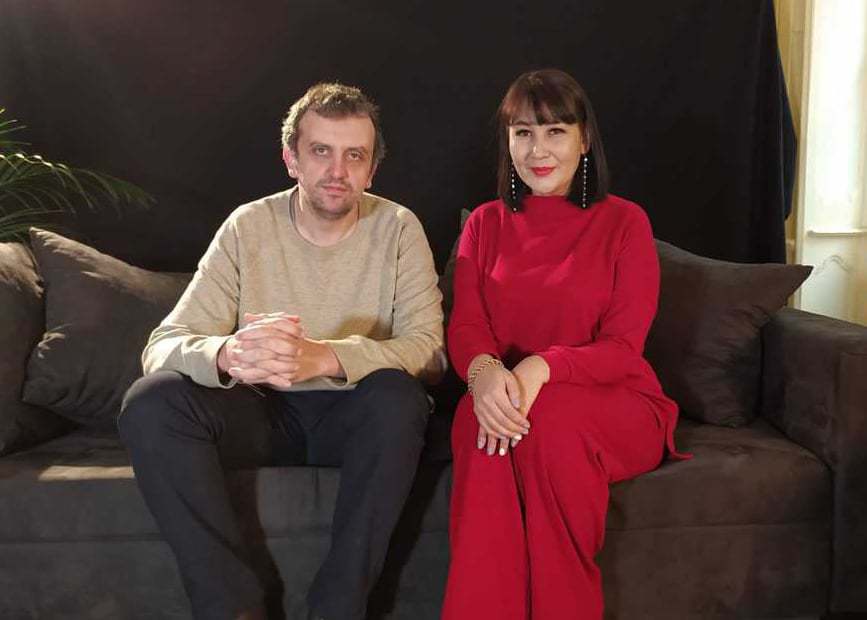Ham Tran received his MFA in directing from the UCLA School of Film and Television. His first feature, “Journey from the Fall” (2006), premiered at Sundance Film Festival. In 2022, Tran returned to Sundance with the family sci-fi, “Maika”. In addition to feature films, Tran continues to direct commercials and branded shorts.
On the occasion of “Maika” screening at Red Sea International Film Festival, we talk with him about his past work, going back and forth between the US and Vietnam, the concept behind the film, working with children and many other topics.
“Maika” screened at Red Sea International Film Festival

I have seen four of your movies, “Journey from the Fall”, “Hollow”, “Bitcoin Heist” and now “Maika”, and they are all so different. Why is that?
In Vietnam, I am what is known as the ‘film doctor'. I help a lot of other filmmakers in the studio, I help them make a lot of their hits. They mainly just do very standard films, romantic comedies or horror comedies and stuff like that. Therefore, every time I have the chance to make my own film, I always try to do something different.
So you pursue this change?
Absolutely! I just felt that if I am in Vietnam making films, I want to make something different, also because in the jobs they hire me to do, I see so many similar things, and I just can't see myself making the same type of movies. “Journey from the Fall” was my first feature and “Hollow” is actually my third one, my second was a romantic comedy, “How to Fight in Six Inch Heels”. I am not sure if you remember, but “Journey from the Fall” got me banned in Vietnam, and that is why I had to help other people with their films, because I could not go back and direct my own. And with “Hollow” I felt that Vietnam always produced horror comedies, but never a straight horror movie. Now we have many, but not at the time. After “Hollow” I was thinking what else I was going to do, so I thought that Vietnam never really had a heist film. So, “Bitcoin Heist” was actually the first narrative fiction, I think in the world, about a heist that involves bitcoins, since all the other films dealing with the concept were documentaries. That was fun and it started something new. The fans I have in Vietnam love watching the films I make because it is always something fresh for them.
Check the review of the film
It is the same thing with “Maika”. We never really had a science fiction film and they also do not make a lot of kids content, at all essentially. “Maika” is a remake of a television series from Czechoslovakia, before E.T. actually, and was super famous in Vietnam in the 80s. They got it from Russia through the broadcasting system, and the kids went crazy at the time. Parents named their kids “Maika” so when I was crewing up for my film, I talked to an AD, and asked if she would like to work on it, she asked what it is called, and when I told her, she told me that her 8 year old daughter's name is Maika. She was a huge fan and so she agreed to work immediately. It is a very big cultural phenomenon, and I only made it because, in 2018, my mother died. To make things more clear, at the time, I was ready to leave Vietnam. I thought that I worked there for 12 years, so far away from my family, since we all left Vietnam. The studio I worked for, which I have made three movies for, told me I could not leave, that they needed me to stay, because they had a film for me, and I could write it any way I wanted, because of the concept. So when I read that it was the story of a little boy who lost his mother and is so sad that he cannot get over it until he meets this alien friend, I thought, “I know this boy”.
Did you also watch the series?
I did not, I didn't even know about it until they told me and when I went back to watch it, I understood what it was about. And I watched it in Vietnamese dub, and I thought that it was incredible, and you know that old dub is one woman monotone voice (laughter). But it was really interesting because when you watch the Vietnamese dub, you are actually hearing three languages, it went from Czechoslovakian to Russian and then to Vietnamese, in the same video (laughter). We even put that in the movie, in a couple of scenes where the boy is watching TV and I put in the version where you can hear, although the audio is very low.
How was the whole experience with Sundance?
It was great. Unfortunately, Sundance became online and I was really looking forward to the kids being able to go there, because they have never left Vietnam before. All the in-person screenings were canceled but it was great because it got me a chance to go back to the US and to reconnect with a lot of my friends, because I was away for 12 years. It is really interesting, a lot of the friends who were assistants are now executives and I found out that it is an amazing time for Asian Americans to be making films in the US. A lot of my friends were saying to me to come to the US and that they would help me, but my heart is still in Vietnam.
If I can work in the US, that is great, but I still want to live in Vietnam because I just remembered the first time I went back, in 2000, and it has been like 20 years since I left Vietnam, and my skin came alive. I was like, “Oh yeah, I remember this weather on my skin, the smell of the streets” everything came back to me (laughter). That was back in the year 2000 and I was going back and forth working , but it was not until 2010 that I went back and stayed. And it was one film after another, because there was a big boom. I consider myself very fortunate to be able to go back and get welcomed right away in the film industry, which happened due to all the films I helped others with. After “Journey from the Fall”, I helped with “Rebel”, Veronica Ngo's breakout film. I fixed that, and then the studio told me that the director (Charlie Nguyen) is producing his next film and then they cut it together and it was terrible, and they asked my help again. Helping the same director for four of his first movies in Vietnam and then other filmmakers and other filmmakers; I fixed 24-25 films in ten years.
How was your cooperation with the kids in “Maika”?
It was very easy because before I got into film school, I was going to be a Montessori teacher. I was getting my degree in teaching and working with kids so it was very easy for me. I felt like I was a kid too and so I can sort of talk at their level and I don't really talk down to them. And that is a lot of the Montessori training as well. I left Vietnam when I was eight, and there was a lot of change, suddenly the whole world was different. I was a Buddhist and then my parents became Christians, telling me I cannot pray to that God any more. We were Chinese Vietnamese so I was speaking Vietnamese and in the US I was Chinese, so a lot of my world got changed and sometimes I feel I am still that 8-year old boy trying to make sense of everything. So a lot of my stories, even my first short films to my thesis film from UCLA, which was shortlisted for the Academy Awards in 2004, were all about kids and their experience of the world. I feel like I am still in the process of reconciling with that traumatic experience in the past
Was the casting difficult?
No, no, the casting was great. I found the little boy, Phu Truong Lai, when I was doing a commercial and it was like a documentary-style. I was interviewing his grandmother and all he had to do was give her milk, but I saw from the corner of my eye how smart he was and that he did not complain like other kids. The client told me that they loved what I did and they asked me to do another commercial for them, a short film about a little boy and his grandfather. I said yes and I cast him and on the first day, we were shooting in the park, four boys flying a kite. We brought the boys in the park, we were setting up the camera, and the three other boys were complaining about wanting to go inside, to go home etc. And this little boy turns to them and he says, “Be quiet! We are here to work not to play. First you work and you make money and then you can play!” And I was like, “Who talks like this? Here is my boy!”. Working with him was so natural, once I explained the scene to him, he found his own motivation for every take. I am not the kind of director to tell actors how to say their lines or that they have to stay with the script. Instead I tell them to do it in whatever way it feels natural to them. So I just freed him up and I explained the scenes to him and he brought something new every time. And he acts with all of his heart and so I felt so lucky. And all the kids in the movie are like that.
The girl, Diep Anh Chu?
She was a model, she had never done features before. We had a very low budget for “Maika”, we didn't have the budget to fly her up or down so we asked a friend to do the casting with her and he said that she is beautiful but she cannot act, she talks like a robot. But I told him, with her face, and considering that she is an alien, that is perfectly ok. We cast her right away, and she was perfect. We knew that she had not acted before so we shot all the lighter scenes in the beginning and all the heavy scenes at the end so she had time to learn and be comfortable with the kids. Tin Tin the chubby boy has been acting since he was four years old, but only on the stage. He does live shows, he raps, he sings Vietnamese opera. He is a stage figure. When he auditioned, he was so loud, because on the stage you act for the people in the back. We had to tell him to go smaller, but he is really fun to work with. We got so lucky, we cast all the kids in three weeks. We were super lucky. With the adults, since I have been in the industry, I knew already who will work and so the casting was really fast.
Tell me a bit about the SFX, since you did not have that big of a budget.
Oh my God! I pretty much did all my previsualization myself. Basically, we came up with a design and I asked the VFX team, because in Vietnam they don't do sci-fi, they don't even know how to prep. I did storyboards and I gave them the story boards and they still did not know how to do it. So, I told them to build me a 3D model that I can manipulate on a green screen and they did. And basically when I am editing, I just imagine the angle and I go and I open the 3D and I just screen record, the plane moving for example, and then I cut and I composite it myself. I have to be creative. And the thing is we don't have money and we wanted to have a very child-like and fun and not something like “Transformers” with big effects. I wanted to scale down because it fit the story as well. Would I love to have more money to do it? Yes, but I think that is part of the charm of the film. We shot it at 1 to 5 so it is more like a TV, because I wanted to pay homage to the old TV show. I am a big Hayao Miyazaki fan, and the two kids in “Laputa” are my favorite so I think that Hung and Maika are like these two kids.
You also managed to include some social comments, like the contractors kicking out the residents for example
Absolutely! Vietnam is growing so fast. On the same street I live in, there is just one cafe across my street, and every year there is a new owner, and then they tear it up and they build it up again and again. And that is what is happening in the city, constantly reinventing itself. There are also a lot of poor neighborhoods and everybody has moved out, they get paid and they leave. In order for these high rises to be built. There is a commentary there for sure. But for me, I wanted to make Maika for my mother and I wanted to make a love letter to her. Some lines in the film, when she sniffs her hair for example, that is the last thing my mom said to me. There are things like that that I put in there because I think in the Vietnamese culture, the kids do not connect with their dad. They only connect with their mom cause the dad has to be strong and silent etc. I wanted to include something that would help families come together as well. And they do not talk about death, they do not know how to handle that. My biggest fear when I was a kid was losing my mom. And I would see horror films or dramatic films and then a mother would die, and I was overwhelmed. I feel kids do not have these tools to get over that. I think that with “Maika”, I was able to convey that message and I was able to help myself.
Was “Maika” released in Vietnam?
It was released but because of Covid, it was released too early. It took three years and the investors were pushing towards releasing it and I wanted to release it during the autumn festival when they make the moon cake and everything. The studio had another opinion so it was ok, we broke even, but it should have been so much more. Because all the reviews are great, every single review, all the people loved it, it was just bad timing.
Now it is streaming in the US, right?
Yes, and it is available on Netflix Vietnam also now. It is streaming now and I am moving to my next film.
What is it about?
A horror movie, gothic and is based on the Vietnamese Cinderella story. Three women stranded on an island with a demon. An easy concept that is so beautiful and I got to location scouting, and being there for 12 years, I thought that I have seen a lot of Vietnam, but it turns out there is still so much to see. These locations I went to are like paintings, I didn't even know these amazing locations could exist in Vietnam. That is why, even if I get to direct in the US, my heart is in Vietnam
















